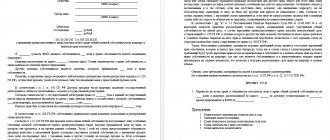The concept and legal status of public legal entities regulated by civil law
The concept of public education is not directly provided for in legislation. It can be found through the science of constitutional law, as well as in the positions of the highest judicial authorities.
The latter mean by this term any government bodies performing public functions.
However, the science of constitutional law limits them to 3 types:
- national subject - the Russian Federation;
- regional – subjects of the Russian Federation;
- municipalities.
The types and list of subjects of the Russian Federation are provided for in the Constitution (Article 65) and include 85 regions.
As for municipalities, their situation is regulated by the basic norms of the Constitution of the Russian Federation, as well as the law “On the general principles of organizing local self-government in the Russian Federation.” This standard provides for such types of municipalities as an urban settlement, a rural settlement, a municipal district, a city district, as well as the intracity territory of a city of federal significance.
Forms of participation of public entities in civil legal relations
The issue of forms of participation of public entities in civil legal relations is traditionally resolved as follows. Public entities are endowed with the opportunity to participate in civil circulation in two forms:
- in the form of direct participation - independently with the help of the relevant authorities (Article 125 of the Civil Code), i.e. in a manner similar to that established in Art. 53 Civil Code for legal entities;
- in the form of indirect participation - through representatives (clause 3 of Article 125 of the Civil Code), i.e. through the establishment of relations of representation (Chapter 10 of the Civil Code).
More details
In addition, sometimes in the scientific literature the types of indirect forms of participation of public entities in civil circulation include the participation of the latter through established legal entities - unitary enterprises and institutions. If we ignore the legal component, we can agree that public entities, while remaining the owners of property transferred to such legal entities on the basis of limited property rights, are somehow involved in civil circulation.
However, it is impossible to formally and legally agree with this position, since these legal entities are recognized as independent participants in civil circulation along with public entities (Articles 113, 120 of the Civil Code). This conclusion is directly confirmed in the rules on the independent responsibility of public entities and legal entities established by them (Article 126 of the Civil Code).
As for the independent participation of public entities in civil circulation, it is necessary to take into account that, unlike bodies of legal entities, whose powers are determined by constituent documents, the powers of state and municipal bodies are determined by the scope of competence established exclusively by the Constitution of the Russian Federation, federal and regional laws and by-laws, as well as acts of municipalities.
The indication that state and municipal bodies act on behalf of public entities should not be misleading. In such cases, no relations of representation arise, since public entities, due to the peculiarities of their nature (collective subjects), cannot independently acquire rights and obligations other than through the actions of their bodies. It is another matter that the performance of public entities as independent subjects in civil circulation through their bodies must be distinguished from cases of independent management of the latter, when individual bodies as legal entities acquire rights and obligations for themselves (for example, when any department purchases office supplies for its own needs).
Typically, public entities participate in civil circulation through executive authorities (formally and legally, there are hardly any obstacles to participating in circulation through legislative bodies, although this is not typical). In the scientific literature there is no consensus on whether the highest public authorities can act directly on behalf of public entities in civil circulation. It seems that, theoretically, the highest bodies of public power can still be vested with appropriate powers in special cases. Another thing is that at present the legislation does not really establish cases of such participation.
The executive bodies include:
- at the federal level - the Government of the Russian Federation, federal ministries, agencies, services and other departments, including territorial bodies (see, for example, Chapter 6 of the Constitution of the Russian Federation; Federal Law "On the Government of the Russian Federation" dated December 17, 1997 N 2-FKZ, and etc.);
- at the level of constituent entities of the Russian Federation - mayor's office, administration, etc. (see, for example, Articles 2, 17, 18 of the Federal Law “On the general principles of the organization of legislative (representative) and executive bodies of state power of the constituent entities of the Russian Federation” dated October 6, 1999 N 184-FZ);
- at the municipal level - administrations, prefectures, etc. (see, for example, Chapter 6 of the Federal Law on local self-government).
Speech by public entities in civil circulation through representatives
The following must be taken into account:
- State and municipal authorities, legal entities and citizens can represent the interests of public entities only in cases and in the manner provided for by federal laws, decrees of the President of the Russian Federation and resolutions of the Government of the Russian Federation, regulations of constituent entities of the Russian Federation and municipal entities (see, for example, Article 6, 38, 39 Federal Law “On the privatization of state and municipal property” dated December 21, 2001 N 178-FZ). From this, in particular, it follows that the bodies representing the interests of public entities include only those that are not vested with special powers in accordance with clauses 1, 2 of Art. 125 of the Civil Code (for the implementation by public entities of independent participation in civil circulation).
- A special order is required from one or another public entity. Essentially, we are talking about the proper formalization of relations of representation, which can be based on an act of an authorized body or on an agreement. Consequently, the peculiarities of the acquisition of rights and obligations by public entities through representatives exclude the latter from having powers arising from the situation in which the representative operates (paragraph 2, paragraph 1, article 182 of the Civil Code).
The procedure for the emergence and implementation of legal capacity
The civil legal capacity of such entities appears from the moment of their creation. As for the Russian Federation, in its modern form it was created in 1993, after the adoption of the Basic Law. Subjects of the Federation are created on the basis of constitutional legislation, as well as charters or constitutions of regions. Charters become the basis for the activities of municipalities.
Features of participation in civil legal relations
- These subjects have special legal capacity. Their status prohibits them from engaging in entrepreneurship.
- They have the authority to establish general rules of civil circulation.
- They exercise legal capacity not through a single center, but in a distributed manner. At the same time, they have the right to independently determine its boundaries.
- They participate in civil legal relations in an indirect way. This is done through certain bodies or through authorized persons.
Despite the fact that the status of these structures implies such broad powers associated with the possibility of changing existing rules, they refuse to violate the principles of equality of participants in civil transactions. This is due to the need to create a favorable regime in all markets and stimulate private initiative.
Legal status of public entities
Public entities act in civil legal relations on an equal basis with other subjects - individuals and legal entities (clause 1 of Article 124 of the Civil Code):
- a ban has been established on the exercise of power inherent in public entities;
- it is impossible to use any advantages arising from the powers inherent in public entities.
More details
Firstly, a ban has been established on the exercise of power inherent in public entities. For example, a public entity cannot oblige another participant in civil transactions to enter into contractual relations with it, since freedom of contract (paragraph 1, paragraph 1, article 421 of the Civil Code) implies the voluntarily expressed mutual will of the parties. It is incorrect to see compulsion based on authority in cases of mandatory conclusion of a contract provided for by law (paragraph 2, paragraph 1, Article 421 of the Civil Code), since this exception to the general rule on freedom of contracts is established equally for all participants in civil transactions.
Secondly, it is impossible to use any advantages arising from the powers inherent in public entities. Thus, a public entity does not have the right to dictate to the counterparty specific terms of the contract that are not beneficial for the latter and do not correspond to its interests, since the common thing for all participants in civil transactions is to determine the content of the contract at a mutually agreed discretion (paragraph 1, paragraph 4, article 421 of the Civil Code). Likewise, a public entity does not have any advantages when concluding civil contracts compared to other participants in the turnover.
Comment. When talking about the equal rights of public entities in civil legal relations, it is important not to confuse different concepts. The participation of public entities in civil circulation is necessary insofar as it is required by the implementation of the tasks of public authority. However, such a functional focus of activity in itself does not replace or abolish the legal equality of all subjects of civil law. In other words, the loss of power in civil legal relations does not contradict the nature of public entities as bearers of public power.
As a general rule, the rules defining the participation of legal entities in civil legal relations are applied to public entities (clause 2 of Article 124 of the Civil Code). In essence, this means that public entities, not being legal entities, are equated to the latter in terms of ownership of property, participation in civil circulation, etc.
From the content of the specified legal regime for the activities of public entities, an important conclusion for law enforcement follows. The effect of many norms of civil legislation relating to legal entities also applies to public entities (for example, norms on the procedure for entering into contractual relations and their execution, etc.). A special indication of a particular public entity is not required, since the general legal basis for the application of the relevant legislative provisions is the rule of paragraph 2 of Art. 124 Civil Code.
However, the peculiarities of public entities as subjects of civil law inevitably determine the presence of numerous exceptions to the general rule on the extension of the legal regime of legal entities to the activities of public entities. Moreover, these exceptions can only follow
- from the law, or
- from the characteristics of public entities (clause 2 of article 124 of the Civil Code).
Consequently, the imperative nature of this norm of the Civil Code excludes the possibility of changing the legal regime of the activities of public entities at the arbitrary discretion of the latter.
Examples
An example of exceptions to the regime of activities of legal entities, due to the characteristics of public entities and actually occurring, can be the rules relating to the formation of a legal entity, its constituent documents, branches and representative offices, reorganization and liquidation, etc. (Article 50-61 of the Civil Code; see also paragraph 1, paragraph 2 of the ruling of the Constitutional Court of the Russian Federation No. 297-O dated 07/05/2005).
Legal capacity of public entities
The legal capacity of public entities is of a special nature, i.e. the scope of possible rights and obligations of public entities is initially limited, in particular
- goals and
- public interests.
In addition, along with the above point of view, opinions are expressed about the target (since the content of legal capacity follows from the function of the bearer of public power), specifically functional (since the content of legal capacity, determined by the functions of the state, determines its target orientation, ultimately, to satisfy public needs) the nature of legal capacity.
It is easy to notice that, in essence, the arguments of supporters of special, targeted or specially functional legal capacity are based on a general idea: the legal capacity of public entities is always limited precisely because of the characteristics of the latter as participants in civil circulation, whose activities have a special functional focus - the implementation of the tasks of public authority. In other words, the substantive coincidence of formally different positions indicates that the dispute is largely terminological in nature.
Consequently, regardless of the name of the nature of legal capacity (special, targeted, specially functional or even specially targeted), one thing remains common: the civil legal capacity of public entities is of an exclusively special nature, due to the characteristics of public entities as participants in civil relations. Therefore, public entities can only have those rights and bear responsibilities that are necessary for them to implement the tasks of public authority.
Ways to exercise legal capacity
Art. 125 of the Civil Code provides for 2 ways to exercise legal capacity. The first implies the actions of individual Federal, regional or local bodies, according to their competence. It is contained both in legislative acts and in regulations on them. Such bodies have the rights of a legal entity.
Another method is the actions of such bodies, as well as citizens or organizations on the basis of laws, Presidential decrees, Government resolutions, local regional acts, carried out on special instructions.
An example of this could be voting on the board of directors of a joint stock company in which a public entity is a participant.
Relations related to intellectual property
Art. 1298 of the Civil Code establishes the possibility of certain conditions in a contract for the creation of a work of art or culture for the needs of the state or municipality. The exclusive right may belong either solely to the customer or to the latter along with the contractor. In cases where it remains with the author, the customer receives a simple license to use the work free of charge.
In relation to technologies (know-how), exclusive rights may also belong to the customer, but such a condition must be contained in the contract. Such conditions are necessarily included in the text if the result relates to objects withdrawn from circulation, if the implementation is financed by the Russian Federation, if the results are related to the defense sector and security.
Ownership
Article 212 of the Civil Code of the Russian Federation gives PPO the right of ownership on an equal basis with other entities, unless otherwise established by law.
Ownership, management and disposal of property by subjects are recognized and protected by the Constitution if it meets several conditions:
Property relations of public legal entities are regulated in the same way as those of civil entities and legal entities.
What is the property of public legal entities in simple language and by what rules is it established? In accordance with subsection 3 of the Civil Code of the Russian Federation, the definition refers to property (objects of civil rights) owned by state entities.
There is a strict hierarchy in the definition of property rights. The right of ownership in the Russian Federation (in its composition and in the constituent entities of the Russian Federation), as well as in municipalities, arises on the basis of Federal Law No. 52-FZ of November 30, 1994 and Art. 218 of the Civil Code of the Russian Federation.
Property rights of state public legal entities
The legal basis for the right of state property is enshrined in Art. 214 Civil Code of the Russian Federation. According to the law, state property is property that:
- is property of the Russian Federation (federal property);
- is the property of the constituent entities of the Russian Federation (property of the constituent entity of the Russian Federation).
The property rights of state public legal entities are assigned to unitary enterprises and institutions . The responsibilities of enterprises include ownership, management, use and disposal of state property on the basis of economic management or operational management (Articles 294, 296 of the Civil Code of the Russian Federation).
The list also includes the treasury, which consists of funds from the federal budget and budget funds (treasury) of the constituent entities of the Russian Federation.
The state has the right to own all types of federal property, including limited and withdrawn from circulation.
There are a number of objects of civil rights that are legally assigned to state public legal entities by Resolution of the Armed Forces of the Russian Federation No. 3020-1 dated December 27, 1991 (as amended on December 24, 1993, hereinafter referred to as Regulations*).
Federal public property includes the following property:
- land not owned by citizens, legal entities or municipalities;
- subsoil and fossil resources;
- forest fund;
- water resources (including territorial waters);
- resources of the continental shelf and marine economic zone;
- railways;
- production facilities for the production and use of nuclear and radioactive materials (nuclear plants, nuclear weapons);
- historically significant objects on the federal balance sheet;
- objects of cultural heritage of federal significance;
- mints and other enterprises for the production of state signs, etc.
The listed objects are withdrawn from circulation and cannot belong to private or legal entities. The state has the right to dispose of property in accordance with its own needs, taking into account the benefits received by interested parties.
Property of municipal public legal entities
The municipal form of ownership is regulated by Art. 215 Civil Code of the Russian Federation . The property rights of this subject of civil legal relations extend to objects of civil rights that belong to public legal entities on the basis of municipal property rights.
Property is assigned to municipal enterprises with the rights of economic management or operational management (Articles 294, 296 of the Civil Code of the Russian Federation).
The Regulation* classifies the following objects as the property of municipal public legal entities within the framework of the responsibility of the local executive authority:
- housing and non-residential stock;
- urban engineering infrastructure facilities;
- educational and healthcare institutions;
- social facilities, etc.
Property also consists of local budget funds and other funds not distributed between municipal institutions and enterprises (municipal treasury).
Public property management
Like any property, the property of public legal entities can be used to benefit the owner. The exercise of property rights occurs through the participation of these entities in civil legal relations (Article 124 of the Civil Code of the Russian Federation).
Property management is carried out in accordance with Art. 125 of the Civil Code of the Russian Federation and is performed as follows:
- Management of federal property. The rights to manage property of state public legal entities (the Russian Federation and constituent entities of the Russian Federation) are exercised by federal government bodies (Articles 71-73 of the Constitution of the Russian Federation).
- Municipal property management. The rights to manage property of municipal PPOs are exercised by local government bodies and persons whose competencies comply with the requirements of Art. 125.
Since the property rights of state and municipal PPOs are built on the principle of separate property, these entities are not liable for each other’s obligations (Article 126 of the Civil Code of the Russian Federation).
Corporate Relations
Most often, the participation of the state and municipalities is manifested in cases of privatization, as well as in the process of creating legal entities and their management.
Such entities may participate in both commercial and non-profit organizations.
By participating in the capital of commercial organizations, the Russian Federation acts mainly through the Federal Property Management Agency. But there are other similar bodies. For example, the management of Sberbank shares owned by the state is carried out by the Central Bank of the Russian Federation. Voting in the boards of directors of enterprises in which a share belongs to the state or municipality is carried out by persons appointed to these bodies.
The legislation also provides for this type of organization as state corporations. The procedure for the creation and operation of each of them should be regulated by a separate federal law.
Author of the article
Responsibility of public entities
Participating in civil transactions involves not only acquiring rights, but also bearing responsibilities on an equal basis with other participants in civil transactions, including those related to the burden of responsibility.
The Russian Federation, a subject of the Russian Federation, a municipal entity are liable for their obligations with the property belonging to them by right of ownership, except
- property that is assigned to the legal entities created by them on the right of economic management or operational management, as well as
- property that can only be in state or municipal ownership.








